The first reason on any algebra proof is this ____.
Given
Point a is in between point C and point B. Point C and point B are collinear. Therefore CA + AB = AC. This is an example of which postulate?
Segment Addition
The following is an example of the ______ property.
m<1 = 150 degrees.
m<1 + m<2 = 180 degrees
150 + m<2 = 180 degrees
substitution?
Supplementary Angles add to _______°
180°
Give an example of the subtraction property.
x + 8 = 58
x = 50
Give an example of the segment addition postulate, with a drawing. (Use the points A, B, and C).

AB + BC = AC
Explain how the angle bisector theorem is different then the angle addition postulate.
With the angle bisector theorem the angle is split into two equal pieces.
The point that divides a segment into two congruent segments.
Midpoint
This would be an example of the which property?
If /_A+/_B=180° and /_B+/_C=180°
then
/_A=/_C
Transitive
True/False. Definition of congruence is only used with segment proofs.
False.
Give an example of a property that is used just with angles.
Angle Addition Postulate
Angle Bisector
Supplementary Angles
Complementary Angles
A pair of opposite angles made by two intersecting lines that are congruent.
Vertical angles
What is the last reason for the following algebra proof?
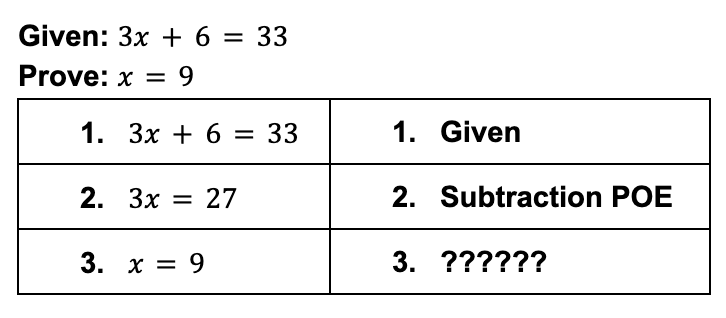
What is the division property of equality?
This reason justifies statement 2 in the following proof.
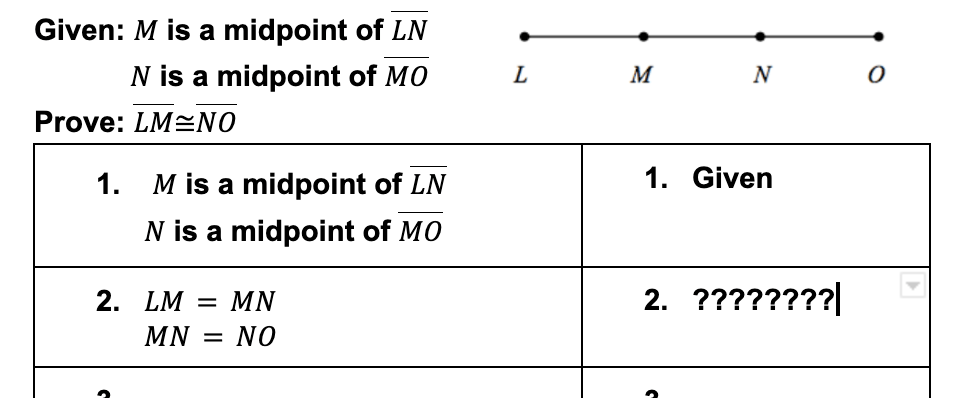
Definition of midpoint
Which theorem tells us that
If
/_1 and /_2 are supplements
and /_2 and /_3
are supplements.
Then
/_1 cong/_3
Congruent supplements theorem
Two angles that are next to one another, have a common side, a common vertex, and don't overlap.
Adjacent Angles
What is a logical 2nd statement (assuming the first is a given):
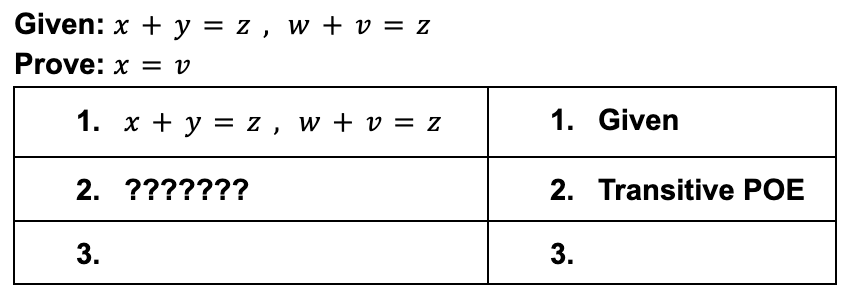
x + y = w + v
What would be the last reason in the following proof?
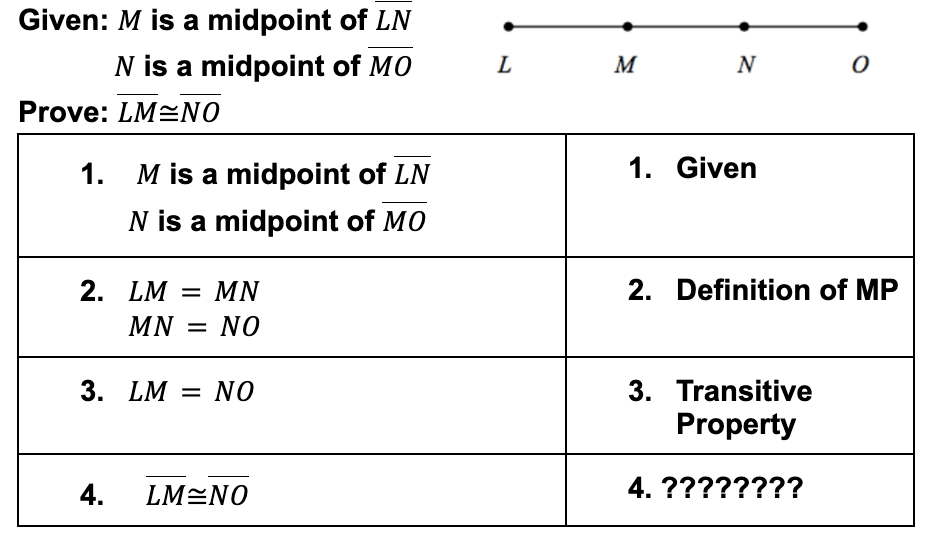
Definition of segment congruence
Give statement #6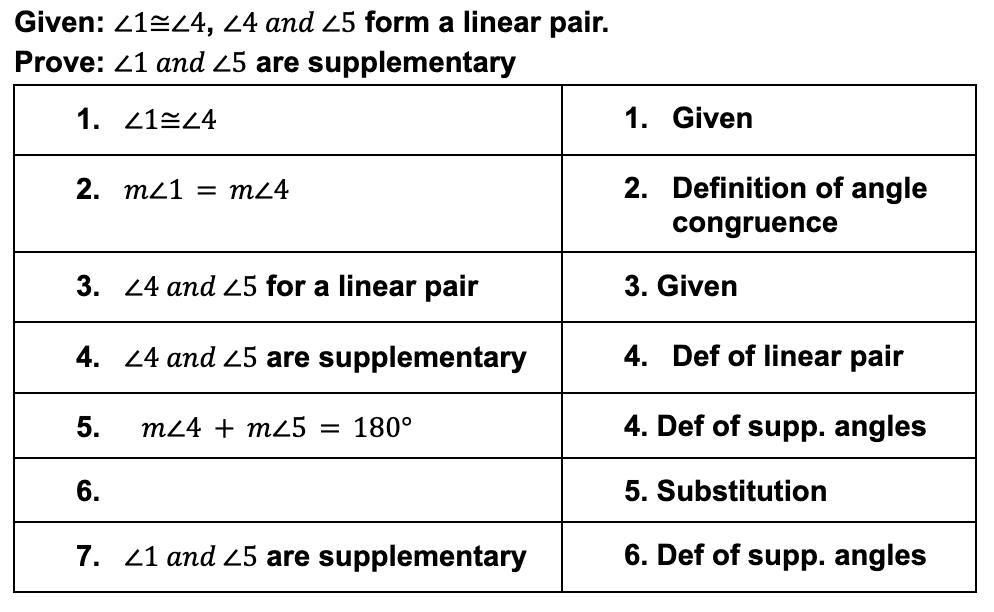
m<1 + m<5 = 180
A statement that needs to be proven before we can use it.
We prove these with definitions, postulates, and properties.
Theorems